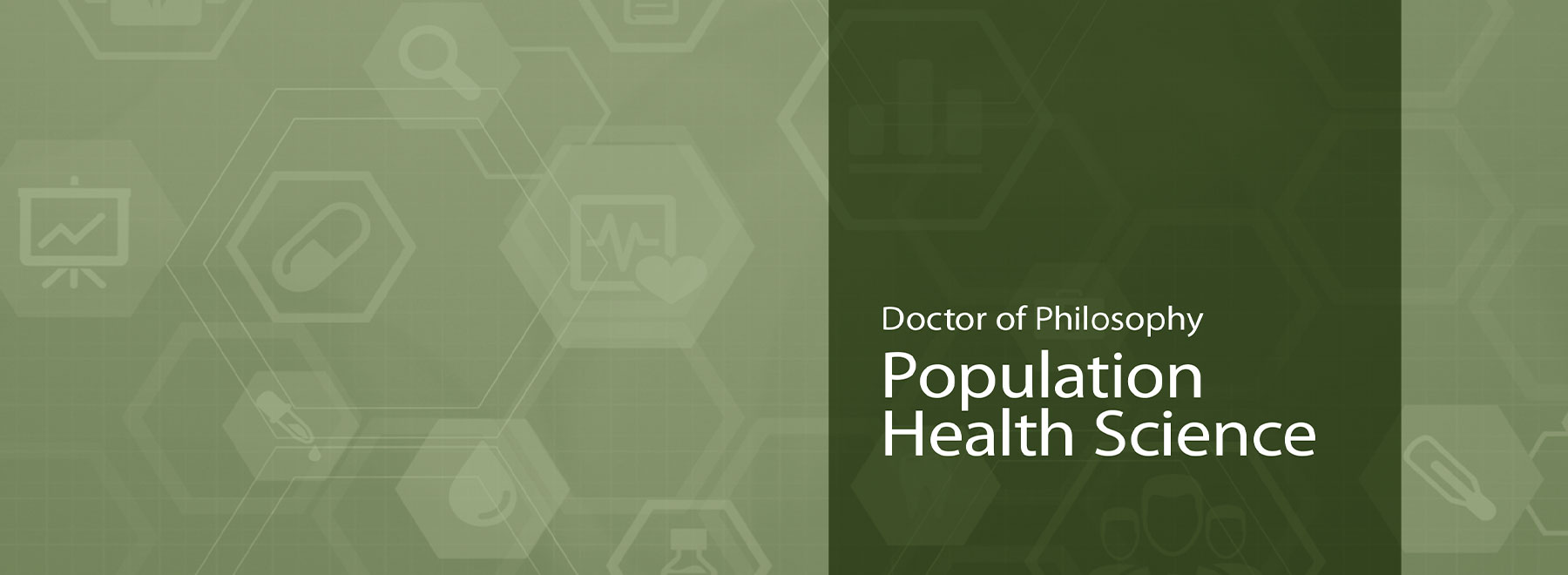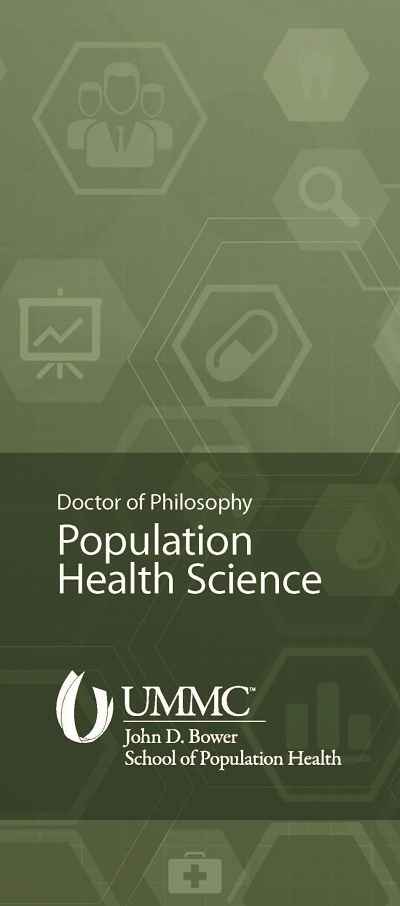
- SoPH
- Faculty and Departments
- Population Health Science
- Education
- PhD - Population Health Science
PhD - Population Health Science
PhD in Population Health Science

The Doctor of Philosophy (PhD) in Population Health Science program will educate students to examine health outcomes and patterns of health determinants, to develop policies and interventions to reduce health disparities and improve population health outcomes, and to effectively communicate scientific studies to a range of stakeholders. Graduates will develop advanced research, analytic, and communication skills necessary for generating and disseminating new knowledge in the science of population health improvement.
Take the first step
Request Information
PhD Program Director: Benjamin Walker, PhD, MS
Phone: (601) 815-9544
Email: bwalker5@umc.edu
Enrolled students will be able to complete the program in approximately 5 years, completing a minimum of 71 credit hours. The program will culminate in an original dissertation designed to have real-world application. All PhD students major in the interdisciplinary field of Population Health Science, with an emphasis on knowledge translation. In addition, students may choose their choice of electives to specify an area of concentration such as vulnerable populations or science communication and dissemination. Following completion of similar coursework to acquire core competencies in Population Health Science, students take a written qualifying examination. A dissertation proposal defense is required after which the dissertation committee decides whether to approve the proposal. Students who pass their written qualifying examination will identify faculty to serve on their doctoral dissertation committee. Each student prepares a proposal for an original dissertation research project under the supervision of their committee. Once the research proposal is approved by the dissertation committee and the Institutional Review Board (IRB) at the University of Mississippi Medical Center, the student can start working on their dissertation research. At the completion of their dissertation, in addition to the formal written work, all students must defend their project in an oral presentation to the wider university community.

Program objectives
The objectives of the PhD program are reflected in the competencies below:
- Understand fundamentals of the field population health science and the contribution to improving health and health care
- Apply evidence-based approaches for knowledge acquisition in population health science, including the ability to:
- Critique the literature, summarize evidence, and synthesize knowledge
- Collect, manage, analyze, and interpret primary and secondary population-level data to reach valid conclusions about the health of populations, including quantitative and qualitative data, and data clustered in space and time
- Design and execute appropriate research studies to identify clinical and non-clinical determinants of health, distribution of health outcomes, and health disparities
- Conduct community health needs assessment, including information about health status, multiple determinants of health, and community assets and resources
- Conduct health impact assessment for a public policy or program outside of the health sector
- Develop a program evaluation proposal for a population health intervention
- Practice applied skills in science communication, knowledge translation and exchange
- Practice effective collaboration skills while working in interdisciplinary teams
- Apply knowledge of the organization, financing, delivery, and value of health care to the design of interventions to improve health outcomes for clinical, organizational, and geographical populations
- Apply systems thinking to addressing complex health challenges.
The PhD degree is a research degree and is not conferred solely as a result of formal course work, no matter how superior and extensive. The program leading to the PhD degree represents more than the sum of time in residence, and the plans of study listed below are only a minimum. To receive the doctoral degree, the candidate must demonstrate evidence of proficiency and distinctive attainment in a special field, and a recognized ability for independent investigation as presented in a dissertation based upon original research.
The MD-PhD is a seven-year program consisting of the first three years of medical school (M1-M3), three years of graduate study in population health science (P1-P3), and the final year of medical school (M4). Years P1 through P3 are devoted to fulfilling the remaining program requirements for the PhD, including coursework and dissertation research. Enrolled students will be able to complete the PhD phase in 3 years.
The goal of the MD/PhD program track of the PhD in Population Health Science is to train medical students to become physician-scientists capable of conducting independent research to address clinical and non-clinical determinants of health to improve the health of populations.
To receive the doctor of medicine degree, the candidate must meet all requirements as defined by the School of Medicine.
Program objective
The goal of the MD-PhD track of the PhD in Population Health Science is to train medical students to become physician-scientists capable of conducting independent research to address clinical and non-clinical determinants of health to improve the health of populations.


